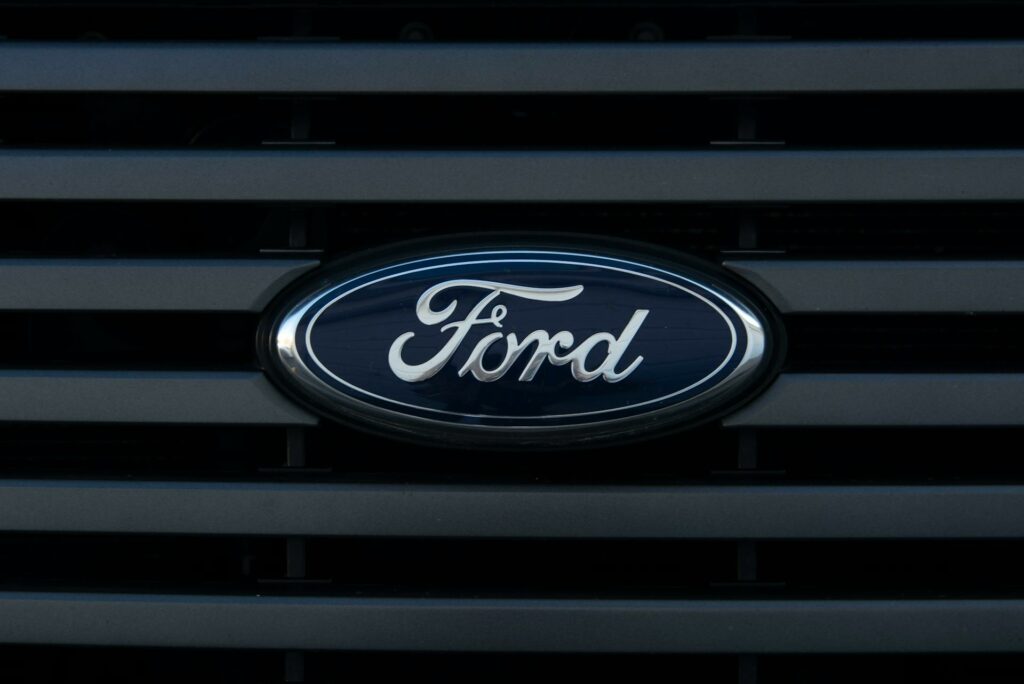The reliability of Ford vehicles has been a subject of extensive debate among automotive experts and consumers alike. Known for their long-standing history and commitment to quality, Ford has consistently endeavored to deliver durable vehicles with lower repair costs and competitive warranty coverage. However, like all automotive brands, Ford has had its share of minor issues and challenges. So, does Ford’s reputation for quality and endurance hold up under scrutiny? Is the brand genuinely reliable? A deeper exploration into the matter could reveal some compelling insights.
History of Ford’s Reliability
One cannot explore a discussion about Ford’s reliability without taking a trip down memory lane. The automaker’s history showcases a consistent commitment to quality, a factor intrinsically linked to Ford’s repairability and consumer feedback.
Ford’s repairability has been a cornerstone of its reliability. The automaker’s vehicles are known for their ease of repair, a factor that consequently impacts consumer perceptions of reliability. Ford has been lauded by mechanics worldwide for designing vehicles that are easy to work on, a commitment that has remained steadfast throughout its history. This ease of repair not only reduces the cost of ownership but also minimizes vehicle downtime, a critical factor in the perception of reliability.
Consumer feedback over the years has reinforced the notion of Ford’s reliability. From the Model T to the F-150, consumers have lauded Ford vehicles for their dependability and longevity. This feedback is an affirmation of Ford’s commitment to quality and durability throughout its history.
Understanding Vehicle Reliability
Before evaluating Ford’s reliability, it is essential to define what vehicle dependability entails. It generally refers to the longevity of a car’s components, its overall performance, and its resistance to wear and tear. Examining these factors specifically in the context of Ford vehicles will yield an extensive understanding of their reliability.
Defining Vehicle Dependability
To fully grasp the concept of vehicle reliability, it is essential to familiarize ourselves with what it entails and why it is important. Vehicle dependability is a measure of the extent to which a vehicle can perform its intended function without any unexpected breakdowns or faults. It is a vital factor that potential car owners consider when purchasing a vehicle.
Dependability metrics are a set of quantifiable measures used to evaluate vehicle reliability. These metrics may include the frequency of faults, the severity of faults, and the cost of repairs. They provide an extensive view of a vehicle’s performance and reliability over time.
Consumer feedback is another valuable factor in defining vehicle dependability. By evaluating the experiences of past and current owners, we gain insights into the day-to-day dependability of a specific vehicle model. This feedback often reveals patterns of common issues or strengths that aren’t evident in the initial dependability metrics.
In essence, vehicle dependability is a multi-faceted concept, encompassing both statistical data and real-world experiences. It plays a critical role in the automotive industry and greatly influences consumers’ vehicle purchasing decisions. Therefore, understanding it is key to evaluating any vehicle’s reliability, including Ford’s.
Evaluating Ford’s Reliability
Often, when analyzing the reliability of Ford vehicles, one must consider both the empirical data and the consumer feedback. With Ford ownership, satisfaction often hinges on factors such as repair costs, warranty coverage, and fuel efficiency.
Consumer feedback provides a wealth of information about Ford’s reliability. It’s a way to measure brand loyalty, which reflects the customers’ satisfaction and trust in the brand’s quality. High levels of brand loyalty often indicate that Ford vehicles meet or surpass the expectations of their owners, regarding performance metrics and long-term dependability.
Repair costs are a significant factor in determining reliability. Ford’s reputation for affordable maintenance and repair costs is a positive indicator of its reliability. Lower repair costs also imply durable construction and higher quality parts.
Warranty coverage is another vital consideration. Ford’s warranty coverage is competitive and all-encompassing, affirming their confidence in the vehicle’s reliability. Performance metrics, such as power, handling, and fuel efficiency, also play a role in evaluating reliability.
Lastly, technology integration can enhance the driving experience and vehicle safety, further promoting the reliability of Ford. Consequently, based on these factors, Ford has established a strong reputation for reliability.
Key Factors in Ford’s Durability
The durability of Ford vehicles can be attributed to several key factors. First, Ford’s advanced manufacturing techniques guarantee the precision and quality of every vehicle component. Further, the integration of high-quality components and the company’s commitment to offering thorough maintenance and aftercare services greatly contribute to the robustness and longevity of their vehicles.
Ford’s Advanced Manufacturing Techniques
Innovation stands at the heart of Ford’s advanced manufacturing techniques, serving as a crucial element in the automaker’s reputation for durability. These sophisticated methods are an indication of Ford’s commitment to quality and longevity, principles that have been in place since its inception.
The use of advanced materials is an essential part of Ford’s manufacturing techniques. These materials, which include high-strength steel and lightweight aluminum, greatly enhance the robustness and resilience of Ford’s vehicles. They contribute to the overall strength of the automobiles, making sure they can withstand demanding conditions and rigorous use over extended periods.
Ford also prioritizes production efficiency, a factor that directly influences the reliability of their products. By employing state-of-the-art technology and streamlined processes, Ford has been able to minimize errors and inconsistencies in production. This guarantees that each vehicle rolling off the assembly line meets stringent quality standards, reducing the likelihood of malfunctions and breakdowns.
High-Quality Component Integration
Leveraging an array of high-quality components, Ford has greatly contributed to the durability and reliability of its vehicles. This commitment to excellence is evident in the component materials and integration processes that the company employs.
Ford’s strategy emphasizes the use of top-tier component materials, such as high-strength steel and lightweight aluminum, to bolster vehicle resilience. These materials not only enhance the vehicle’s structural integrity, but also contribute to improved fuel efficiency – a practical advantage for consumers.
The integration processes also play a key role in Ford’s durable design. Precision-engineered parts are assembled with meticulous care to guarantee seamless interaction between components. Advanced technologies and skilled technicians work hand-in-hand to ensure that each component fits perfectly, minimizing the possibility of premature wear and tear.
Moreover, Ford continuously innovates its integration processes, applying lessons learned from previous models to enhance the reliability of newer ones. This continuous improvement approach assures Ford’s commitment to deliver vehicles that are not just built tough, but also designed to last.
Maintenance and Aftercare Services
Beyond the remarkable integration of high-quality components and materials, Ford’s robust reliability is equally attributed to its thorough maintenance and aftercare services. These services are designed to guarantee the longevity and durability of Ford vehicles, enhancing their performance and reliability over time.
Routine inspections form a critical part of Ford’s maintenance and aftercare services. These inspections allow for the early identification and rectification of any potential issues that may impact the vehicle’s performance or longevity. The routine inspections encompass the entire vehicle, from the engine to the suspension system, thereby assuring all components are functioning at their best.
Moreover, Ford’s extensive warranty coverage offers additional assurance of the vehicle’s reliability. This coverage, which spans several years and mileage thresholds, provides for the repair or replacement of components that may fail due to manufacturing defects. It serves as a demonstration of Ford’s confidence in the quality and durability of its vehicles.

Analyzing Ford’s Safety Features
How does Ford stack up regarding safety features? Ford has consistently proven its commitment to safety through continuous advancements in safety technology and innovations. The brand’s focus on accident prevention is evident in its robust driver assistance systems, which include features like automated emergency braking, lane-keeping assist, and blind-spot detection.
Ford’s safety measures extend beyond active systems. The company’s vehicles are subject to rigorous vehicle testing to guarantee occupant protection in the event of a collision. This commitment to safety is reflected in their impressive crash ratings, with many models receiving top marks from safety regulatory bodies.
The manufacturer has been a pioneer in introducing safety innovations such as inflatable seat belts, which further enhance occupant protection during a crash. Furthermore, Ford’s safety suite includes post-crash systems engineered to facilitate emergency response. These systems can automatically alert emergency services following an accident, potentially reducing the time between a crash and the arrival of help.
Popular Ford Models Reviewed
Three of the most popular models under Ford’s banner are the F-150, Mustang, and Explorer. These models have garnered considerable customer feedback, thanks to their unique set of features and performance capabilities.
The F-150 is a highly popular model among truck lovers due to its robust engine options and superior towing capabilities. The Mustang, a classic American muscle car, is lauded for its high-performance engine options and sleek design. The Explorer, meanwhile, is a family-friendly SUV with spacious interiors and advanced safety features.
Customer feedback on these popular models has been mainly positive. The F-150, for instance, is often praised for its reliability and power, while the Mustang earns accolades for its acceleration and handling. The Explorer stands out in customer reviews for its comfortable ride and ample cargo space.
However, no vehicle is without its drawbacks. Some customers have reported minor issues with the models’ infotainment systems and fuel efficiency. It’s also important to note that reliability can vary based on maintenance habits and driving conditions.
Ford Versus Competitors’ Reliability
When comparing Ford’s reliability to that of its competitors, several factors come into play. An analysis of Ford ownership, competitor comparisons, and reliability ratings show that Ford typically scores average or above in these areas. Customer feedback often praises Ford’s long-term performance, particularly when it comes to their trucks and SUVs.
Warranty offerings from Ford are competitive, often matching or surpassing those of rivals. Service costs are generally lower compared to luxury brands, making Ford vehicles more affordable to maintain. However, certain Ford models do have specific issues that can impact their reliability ratings negatively.
In the scope of market trends, Ford has shown consistent improvement in its reliability scores over the years. Despite occasional model specific issues, Ford’s reputation for durability and performance has fostered a high level of brand loyalty.
To summarize, while Ford does face tough competition regarding reliability, it holds its own. A solid mix of competitive warranty offerings, generally lower service costs, and positive customer feedback contribute to Ford’s standing. Its long-term performance and improvement trends further underscore its reliability.
Future Predictions for Ford’s Reliability
What might the future hold for Ford’s reliability? Based on market trends and Ford’s recent endeavors, it appears that the company is proactively looking to increase its reliability ratings. One area of focus is their investment in electric vehicles (EVs).
Ford has identified EVs as the future of the automotive industry and is investing heavily in this technology. This is evident in their recent launches like the Mustang Mach-E and the all-electric F-150 Lightning. These electric vehicles are not only eco-friendly but are also expected to have fewer mechanical issues compared to gas-powered vehicles. The move to electric might prove to be a game-changer for Ford’s reliability.
Additionally, Ford seems to be taking consumer feedback seriously. They are actively working to address common complaints and are implementing strategies to reduce the frequency of these issues. This emphasis on customer satisfaction could markedly improve the perception of Ford’s reliability.

